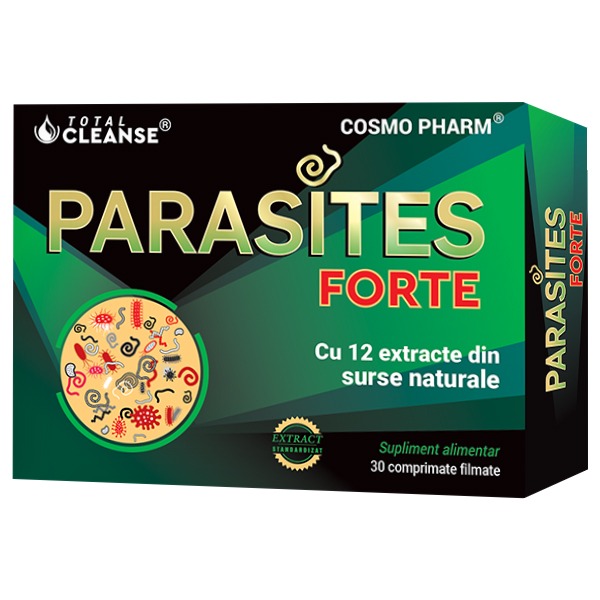Parasitic infections of the brain can pose a serious threat to human health, as they can cause a variety of complications, from cognitive impairment to death.
While these infections are rarer in developed countries, they remain a major concern in regions with limited access to medical care. Parasites can reach the brain through the bloodstream or other pathways, causing a wide range of symptoms, from headaches and fever to coma.
What are Parasitic Infections of the Brain?
Parasitic infections of the brain are medical conditions in which a parasite invades brain tissue, causing inflammation and other complications. These infections can range from asymptomatic forms to severe conditions, and may include symptoms such as headaches, fever, seizures, and even coma.
Parasites That Can Affect the Brain
Parasites that affect the brain are either microscopic or macroscopic organisms that survive in or on a host, extracting nutrients and causing damage. Some notable parasites that can cause brain infections include:
- Toxoplasma gondii: A protozoan responsible for toxoplasmosis, a disease that often presents mild or even asymptomatic symptoms but can cause serious problems in individuals with weakened immune systems or pregnant women. Toxoplasmosis is the most common parasitic infection of the central nervous system (CNS) in humans. Up to one-third of people worldwide have latent infections with Toxoplasma gondii, which are typically asymptomatic. The disease can develop when these latent infections in the brain reactivate in patients with compromised immune systems. Toxoplasmosis is the most common opportunistic infection in individuals with HIV, and the risk is higher when the CD4+ cell count is below 100 cells/mm3.
- Naegleria fowleri: A free-living amoeba (a single-celled organism) that is so small it can only be seen under a microscope. It is typically found in warm freshwater (such as lakes, rivers, and hot springs) and soil. Only one species, Naegleria fowleri, infects humans. It enters the body through the nose when contaminated water is inhaled, typically during swimming, diving, or submerging the head in freshwater. The amoeba then travels up the nose to the brain, where it destroys brain tissue and causes a devastating infection known as primary amebic meningoencephalitis (PAM), which is almost always fatal.
- Plasmodium spp.: This genus of protozoa is responsible for malaria, and in severe cases, the parasites can reach the brain, leading to cerebral malaria, which can be fatal. Malaria is a long-standing disease transmitted by mosquitoes, caused by protozoan parasites from the Plasmodium genus. According to the most recent World Malaria Report published by the World Health Organization (WHO) in December 2021, there were 241 million clinical cases and 627,000 deaths reported in the previous year.
- Taenia solium: Known as the pork tapeworm, Taenia solium is a parasitic flatworm belonging to the Taenia genus. It has a lifecycle that involves two hosts: humans as the definitive host and pigs as the intermediate host. In humans, the adult Taenia solium can grow up to several meters long. The larval cysts (sacs containing the immature stage of the parasite) of the pork tapeworm are responsible for an infection called neurocysticercosis. The condition known as cysticercosis occurs when the larval cysts infect various parts of the body, including the brain, leading to seizures. The most severe form of the disease, neurocysticercosis, affects the brain and can be fatal. It is part of a group of diseases that cause severe complications in infected individuals and are often poorly understood by medical professionals, classified as a neglected parasitic infection.
- Trichinella spiralis: A parasitic nematode that infects mammals, including humans. Humans become the definitive host after consuming raw or undercooked meat containing the parasite’s cysts. The larval stage of T. spiralis has the ability to infect muscle tissue, including the heart and diaphragm, and in extreme cases, the central nervous system. The infection can progress to myocarditis (inflammation of the heart muscle), encephalitis (inflammation of the brain), and respiratory failure, which can be fatal if not treated promptly. Like neurocysticercosis, trichinosis is often misunderstood and misdiagnosed, delaying treatment and increasing the risk of severe complications. It is also considered a neglected parasitic infection, requiring heightened attention for diagnosis and treatment.
Parasites Forte Total Cleanse® – For Intestinal Parasites and Worms
Toxocara canis and Toxocara cati are parasitic nematodes that infect dogs and cats. They are responsible for a disease called toxocariasis, and in rare cases, humans can become intermediate hosts, where the larvae can spread to various tissues and organs, causing a condition called larva migrans. In very rare cases, Toxocara larvae can migrate to the central nervous system, causing a form of neurotoxocariasis.
How do parasites reach the brain?
The way parasites reach the brain depends on the type of parasite and its infection mechanism. Here are some common pathways:
- Circulatory system: Parasites can enter the bloodstream and be transported to the brain, where they can cross the blood-brain barrier and begin to multiply.
- Ingestion of contaminated food: In the case of Taenia solium, consuming undercooked or contaminated pork can lead to the development of larvae in the brain, causing neurocysticercosis.
- Inhalation or ingestion: In the case of the amoeba Naegleria fowleri, infection can occur through inhaling contaminated water from lakes or swimming pools.
- Vertical transmission: Toxoplasma gondii can be transmitted from mother to fetus if the mother contracts the infection during pregnancy.
Symptoms of parasitic infections in the brain
Here are some general symptoms that can be associated with brain parasites:
Neurological Symptoms: Parasitic infections in the brain can cause a variety of neuroogical symptoms. The type and severity of symptoms depend on the parasite type, the location in the brain, and the extent of the infection. Here are some common symptoms associated with cerebral parasitic infections:
- Seizures
- Headaches or migraines
- Altered mental state (confusion, hallucinations, etc.)
- Behavioral changes
- Memory loss
- Impaired concentration
Physical Symptoms: Cerebral parasitic infections can cause a variety of physical symptoms, depending on the type of parasite, location, and extent of the infection. Here are some physical symptoms that may be associated with brain parasitic infections:
- Fever
- Nausea and vomiting
- Muscle weakness or paralysis
- Sensory changes (e.g., numbness or tingling)
- Eye pain or vision problems
- Motor issues (e.g., difficulty walking or moving limbs)
- Neck pain or stiffness
Other Symptoms:
- Fatigue
- Abdominal pain or discomfort
- Unexplained weight loss
How can you determine if you have a brain parasitic infection?
Determining the presence of a parasitic infection in the brain requires professional medical evaluation. If you experience symptoms suggesting a possible infection at this level, it is essential to consult a doctor for an accurate diagnosis and treatment plan. Here are some common diagnostic methods:
- Medical history and physical exam: The doctor will begin by assessing your symptoms, medical history, and performing a physical exam.
- Blood tests: Blood tests can identify specific markers of infection and help determine the type of parasite involved.
- Lumbar puncture: A sample of cerebrospinal fluid (CSF) can be collected via lumbar puncture and analyzed for the presence of parasites.
- Medical imaging: Brain scans, such as MRI (Magnetic Resonance Imaging) or CT (Computed Tomography), may be conducted to identify any abnormalities caused by the parasitic infection.
- Other tests: In some cases, additional tests, such as biopsies or other imaging methods, may be needed to assess the extent of the infection.
Who is at risk for neuroparasitic infections? Neuroparasitic infections are caused by parasites that invade nerve tissues, including the brain and spinal cord. While anyone can contract a neuroparasitic infection, certain groups of people may be more predisposed due to various factors. These include:
- Immunocompromised individuals: People with immunosuppressive diseases, those on immunosuppressive medications (such as transplant patients), HIV/AIDS patients, or those with chronic diseases are more susceptible to infections, including neuroparasitic ones.
- Children: They may be more vulnerable because they may have habits that expose them to parasites, such as putting objects in their mouths or playing in contaminated soil.
- Elderly individuals: As the immune system becomes less effective with age, the risk of infections increases.
- Travelers or residents in endemic areas: Certain regions of the world have higher rates of parasitic infections, so those who travel or live in these areas are at higher risk.
- People consuming contaminated water or food: Drinking unsafe water or consuming contaminated food can lead to parasitic infections.
- Those with poor hygiene: Irregular hand washing or inadequate personal hygiene practices can increase the risk of infections.
- People exposed to transmission vectors, such as mosquitoes: Some parasites are transmitted through insect bites.
- People frequently in contact with animals: Some parasites can be transmitted by animals, so people who regularly interact with animals (such as veterinarians, farmers, or pet owners) may be more exposed.
What are the benefits of coriander for the nervous system? Coriandrum sativum, commonly known as coriander, is a plant that has been used for culinary and medicinal purposes for centuries. Some studies have explored the neuroprotective effects of coriander and its constituents, such as linalool.
Linalool is a terpene alcohol found in coriander essential oil. It has been investigated for various pharmacological properties, including its potential anti-inflammatory, antioxidant, and antimicrobial effects.
Some studies, often conducted on animal models or in vitro (outside a living organism), have suggested that linalool may have neuroprotective effects that could be relevant for conditions such as Alzheimer’s disease, Parkinson’s disease, and other neurodegenerative disorders.
For example, these studies often analyze how linalool influences oxidative stress, inflammation, and neurotransmitter regulation in the brain.
When linalool enters the bloodstream through the skin or lungs, it may pass through the blood-brain barrier and act on the central nervous system (CNS).
Coriander, containing linalool, is able to cross the blood-brain barrier. The blood-brain barrier is a highly selective filter that protects the brain from most substances in the blood. Only certain molecules can cross this barrier, and coriander can do so, meaning it may have a direct impact on any infections or inflammation in the brain.
How does PARASITES FORTE from Cosmo Pharm® help? Parasites Forte contains a series of plant extracts with antimicrobial and antiparasitic properties:
- Vidanga (Embelia ribes): Known in Ayurveda as a natural anthelmintic. It may help eliminate intestinal worms.
- Cloves (Eugenia caryophyllus): Eugenol, a major component of cloves, is known for its antimicrobial properties that may help fight parasites.
- Walnut (Juglans regia): Black walnut is often used in traditional remedies to eliminate intestinal parasites.
- Oregano (Origanum vulgare): Oregano oil has strong antifungal and antibacterial properties, making it useful against various parasites.
- Wormwood (Artemisia absinthium): It is often used in traditional medicine to treat parasitic infections. It may have a negative effect on various worms and parasites.
- Garlic (Allium sativum): Allicin, a chemical in garlic, has antimicrobial properties that may help combat parasites.
- Grapefruit (Citrus paradisi): Grapefruit seed extract has antimicrobial properties that may be useful against parasites.
- Thyme (Thymus vulgaris): Thyme has antibacterial and antifungal properties.
- Pumpkin (Cucurbita pepo): Pumpkin seeds are often used to treat intestinal worm infections in traditional medicine.
- Coriander (Coriandrum sativum): It may help eliminate heavy metals from the body and be beneficial for parasitic infections.
- Chrysanthemum (Chrysantemum vulgare): Although often used as a natural insecticide, it may also have antiparasitic properties.
- Mint (Mentha longifolia): It may have antimicrobial properties and help improve digestive health.
Benefits of PARASITES FORTE®:
- Combat and eliminate parasites: Helps fight and remove parasites from the body. It also inhibits parasite development and reproduction.
- Impact on worms: The formula paralyzes the nerve centers of worms, facilitating their elimination.
- Antibacterial properties: The supplement has antibacterial properties, fighting pathogenic germs.
- Action on the brain: Compounds in coriander can cross the blood-brain barrier, eliminating parasitic infections such as Toxoplasma and neurocysticercosis from the central nervous system.
- Relief from symptoms caused by parasites: Relieves symptoms like bloating, nausea, and skin rashes.
- Regeneration and recovery: After parasite elimination, it contributes to body regeneration.
- Elimination of heavy metals: Helps eliminate heavy metal buildup.
- Combating viral infections and muscle relaxation: The formula helps fight viral infections and relax muscles.
- Digestive health: Supports the restoration of intestinal flora, antibody production, and healthy digestion.
- Detoxification: Detoxifies the body, supporting the optimal function of vital systems.
- Maintaining balanced appetite: Helps prevent anemia by maintaining a healthy appetite.
How to Use PARASITES FORTE®?
PARASITES FORTE® is recommended to be taken as follows: 1 tablet per day, 15 minutes before a meal, with a glass of water, for 30 consecutive days. It is recommended to follow a course of 3-6 months, twice a year.
Taking it twice a year is suggested for several reasons:
- Parasite Reproduction Cycles: Many parasites have complex life cycles and may require repeated treatments to ensure that all stages of their life cycle are targeted and eliminated.
- Prevention: A repeated course can be used as a preventive measure to reduce the risk of reinfection.
- Increased Efficacy: Just as some vaccines require multiple doses for maximum effectiveness, an antiparasitic product may be more effective if taken periodically.
- Behavior and Environment: People are still exposed to risk factors for parasitic infections, whether through consuming contaminated food or water, contact with contaminated soil, or other means. A repeated course can help manage these recurring risks.
Neuroparasitic infections represent a major health challenge, affecting a variety of individuals, from children to the elderly, especially those with a weakened immune system or those traveling to endemic regions.
Diagnoses and treatments vary, but the importance of recognizing symptoms and conducting medical investigations is essential. Additionally, discoveries related to the benefits of coriander for the nervous system offer an intriguing perspective on natural methods to prevent and combat parasitic infections.
The PARASITES FORTE supplement from Cosmo Pharm®, which combines standardized extracts from natural sources with antiparasitic and detoxifying properties, provides a comprehensive solution for individuals facing parasitic threats. It is vital to stay informed, be aware of the risks, and explore solutions that can protect our health and well-being.



